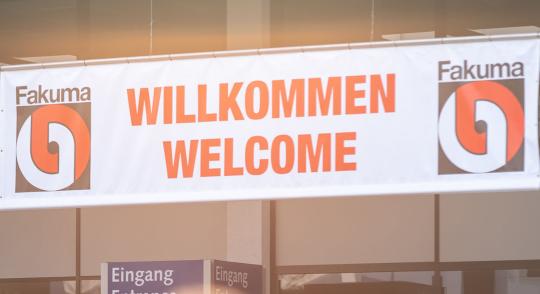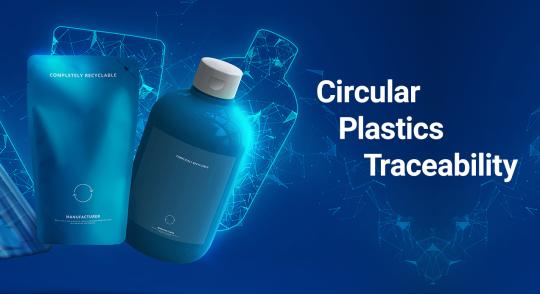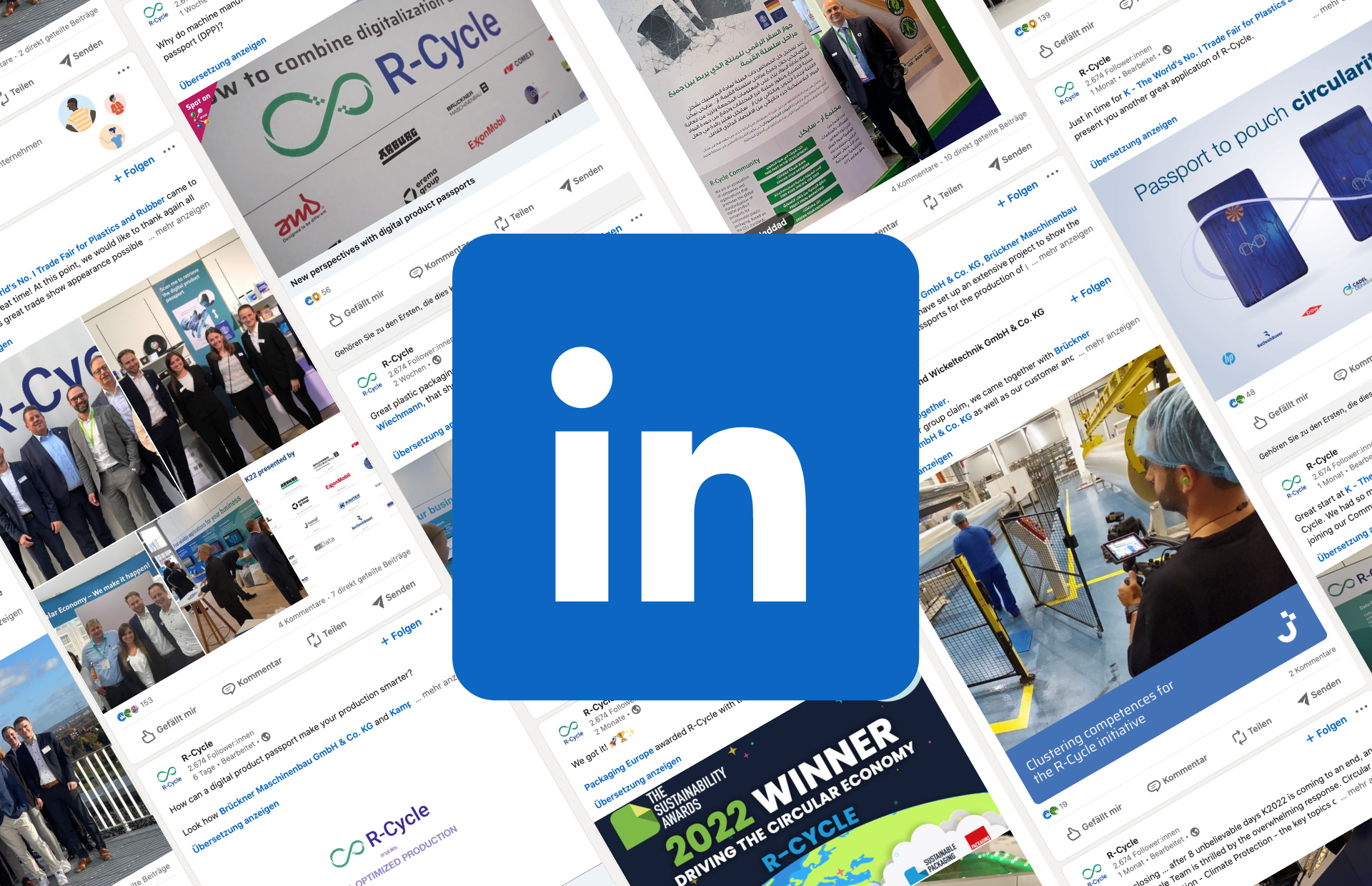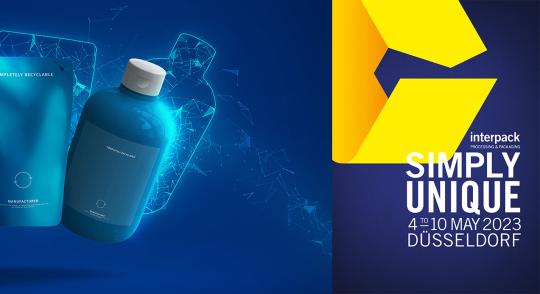

NEW PILOT PROJECT: BOBST aims to help close the plastic loop with R-Cycle
BOBST, one of the world’s leading suppliers to the packaging industry, tests the R-Cycle data standard and is launching a pilot project to automatically record recycling-relevant information during the processing of plastic films.
The aim of the project is to store production data in so-called Digital Product Passports (DPP) and make the information usable for recycling the end products. This approach enables more precise waste sorting and thus the recovery of high-quality recyclate, supporting a functioning circular economy.
To accomplish this, BOBST relies on R-Cycle – the open traceability standard for sustainable plastic packaging. R-Cycle is an initiative that builds a higher standard of visibility and transparency in packaging by creating and storing measurable metrics. With better and more precise information available, the goal is to obtain a higher quality of plastic recyclate and make sustainable plastic substrates a more enticing and eco-friendly prospect for brands.
To undertake its innovative sustainability project, BOBST has selected an EXPERT K5 metallizer for its first R-Cycle trial run at its Centre of Excellence for research and development, located in Manchester.
The EXPERT K5 machine uses a vacuum process to finish plastic films with extremely thin coatings, such as aluminum, to create high-performance barrier properties. Films produced using this technique are significantly more recycling-friendly than conventional processes, such as lamination with much thicker aluminum films.


BOBST EXPERT K5 Metallisierer.
To ensure that the end products can also be efficiently recycled, which remains particularly important in food applications, the BOBST system will store information about the coating, precisely and effectively, in an R-Cycle DPP.
The technology behind this process is based on open GS1 standards for the digitization of value chains. The data record is created during the initial processing of the raw material into plastic film, which can be read and supplemented by any participant in further processing operations. Information collected can include raw materials, colors, additives or coatings, and can be accessed on both intermediate and end products through machine-readable markings.
As well as improving product sustainability, manufacturers benefit from using digital product passports in terms of process efficiency, product quality and transparency. Generating and collecting more accurate information about source materials speeds up production, while recording product properties represents significant added value for customers further downstream in the process.
Nick Copeland, R&D Director Barrier Solutions at BOBST, explains: “Digital Product Passports are key to a functioning circular economy. R-Cycle offers great potential to actively manage resources and material cycles, to ultimately ensure that sustainable packaging solutions are identified in the recycling process – and are recycled to a high quality. It is also an important digitization building block for even more efficient production processes.”
Dr. Benedikt Brenken, Director of the R-Cycle Initiative, adds: “As an industry initiative to establish an open data standard, we are delighted that BOBST, a technology leader in sustainable packaging, is exploring R-Cycle and its benefits. Transforming our current linear production economy into a true closed-loop requires digitization along the entire value chain and relevant stakeholders to drive this approach.”
About BOBST
We are one of the world’s leading suppliers of substrate processing, printing and converting equipment and services for the label, flexible packaging, folding carton and corrugated board industries.
Founded in 1890 by Joseph Bobst in Lausanne, Switzerland, BOBST has a presence in more than 50 countries, runs 19 production facilities in 11 countries and employs more than 5 600 people around the world. The firm recorded a consolidated turnover of CHF 1.372 billion for the year ended December 31, 2020.
Pictures: BOBST
This might also interest you






